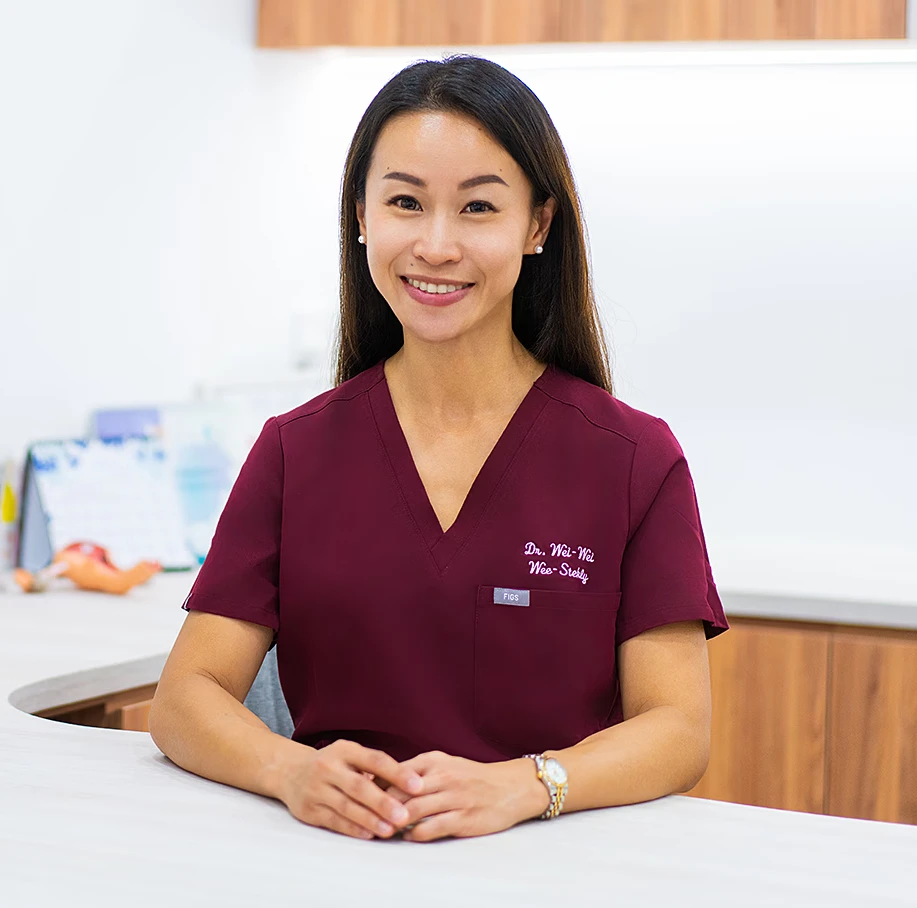Endometriosis Treatment in Singapore

Endometriosis is a condition that affects many women, yet it often goes undiagnosed or misunderstood. It can cause more than just painful periods — it can affect fertility, disrupt daily routines, and take a toll on emotional well-being. Despite how common it is, many women spend years managing symptoms without answers or effective relief.
Whether you’re newly experiencing symptoms or have been living with discomfort for some time, understanding what endometriosis is and how it can be treated is the first step toward reclaiming your health and comfort.
What Is Endometriosis?
Endometriosis is a chronic condition in which tissue similar to the lining of the uterus (called endometrial-like tissue) grows outside the uterus. These growths may occur on the ovaries, fallopian tubes, outer surface of the uterus, and even the bladder or bowel. Like the uterine lining, this tissue responds to monthly hormonal changes — it thickens, breaks down, and bleeds during each cycle.
However, unlike menstrual blood, this tissue has no way to exit the body. Over time, it can lead to inflammation, scar tissue (adhesions), cysts, and chronic pain. In some cases, it can also interfere with fertility.
Endometriosis is not cancerous, but it is a long-term condition that can significantly impact a woman's quality of life if left untreated. It is most common in women in their 20s to 40s but can affect teenagers and older women as well.
What Are the Symptoms of Endometriosis?
Endometriosis symptoms can vary significantly from person to person. Some may have severe symptoms, while others have no symptoms at all. The most common signs include:
- Severe menstrual cramps that do not improve with over-the-counter painkillers
- Pelvic pain before and during periods
- Pain during or after sex
- Pain with bowel movements or urination, especially during menstruation
- Heavy or irregular menstrual bleeding
- Chronic lower back or abdominal pain
- Fatigue, bloating, or nausea
- Infertility or difficulty conceiving
Because the symptoms can mimic other conditions, endometriosis is sometimes misdiagnosed as irritable bowel syndrome (IBS), pelvic inflammatory disease, or simply dismissed as normal period pain.
What Causes Endometriosis?
The exact cause of endometriosis is still not fully understood, but several theories exist:
- Retrograde menstruation: Menstrual blood flows backwards through the fallopian tubes into the pelvic cavity, allowing endometrial-like cells to implant and grow.
- Genetics: A family history of endometriosis may increase your risk.
- Immune system dysfunction: The body may not recognise and destroy endometrial-like tissue outside the uterus.
- Hormonal influences: Oestrogen appears to promote the growth of endometriosis tissue.
- Surgical seeding: In rare cases, endometrial cells may be transferred during surgeries like C-section or hysterectomy.
How Is Endometriosis Diagnosed?
Diagnosing endometriosis can be challenging because symptoms often overlap with other conditions, and imaging may not always detect small lesions. Diagnosis typically includes:
- Detailed medical history: Including symptom patterns and pain severity.
- Pelvic examination: To feel for abnormalities like cysts or nodules.
- Ultrasound scan: Especially useful to detect ovarian endometriomas (chocolate cysts), although not all types of endometriosis show up on ultrasound.
- MRI scan: May be used for complex cases or when deep endometriosis is suspected.
- Diagnostic laparoscopy: A minimally invasive surgical procedure that allows direct visualisation of endometriosis lesions. It is the gold standard for definitive diagnosis and also allows for biopsy or removal during the same procedure.
Early diagnosis can help reduce the risk of complications such as infertility or progressive pelvic damage.
When Should You Seek Medical Advice?
You should see a gynaecologist if you experience:
- Period pain that disrupts daily life
- Pain during sex or bowel movements
- Difficulty getting pregnant
- Unexplained fatigue or pelvic discomfort
- Heavy, irregular, or prolonged periods
Early diagnosis and intervention can prevent long-term complications and help you regain control over your health.
How Does Endometriosis Affect Fertility?
Endometriosis can impact fertility in several ways:
- Distorted pelvic anatomy: Scar tissue and adhesions can affect the ovaries and fallopian tubes.
- Inflammation: May interfere with egg quality, sperm function, or embryo implantation.
- Endometriomas: Cysts on the ovaries can reduce ovarian reserve (egg count).
- Pain during intercourse: This may affect the ability to conceive naturally.
That said, many women with mild to moderate endometriosis can still conceive naturally. For others, fertility treatments such as ovulation induction, intrauterine insemination (IUI), or in vitro fertilisation (IVF) may be recommended.
What Are the Treatment Options for Endometriosis?
There is no one-size-fits-all solution for endometriosis. Treatment depends on factors such as symptom severity, age, desire to conceive, and how the condition affects your daily life. Common treatments include:
1. Lifestyle Modifications
- Anti-inflammatory diet
- Stress reduction techniques
- Regular exercise
- Heat therapy for cramps
2. Medications
- Pain relief: NSAIDs like ibuprofen or mefenamic acid for cramps and inflammation
- Hormonal therapy:
- Birth control pills, patches, or rings to regulate or suppress menstruation
- Progestin-only treatments (pills, IUDs, injections)
- Gonadotropin-releasing hormone (GnRH) agonists to reduce estrogen production and slow lesion growth
These medications help control symptoms but may not eliminate existing endometriosis tissue.
3. Surgery
- Laparoscopic excision or ablation: Minimally invasive removal or destruction of endometriosis tissue, adhesions, or endometriomas.
- Ovarian cystectomy: Removal of endometriomas while preserving ovarian tissue.
- Hysterectomy: In severe cases where other treatments fail and fertility is no longer desired, removal of the uterus (and possibly ovaries) may be considered.
Surgery is most effective when performed by a specialist experienced in minimally invasive techniques and endometriosis mapping.
Can Endometriosis Come Back After Treatment?
Yes, endometriosis can recur, especially if all visible lesions are not completely removed or if hormonal suppression is not continued after surgery. Recurrence rates vary depending on the type of treatment:
- Hormonal therapy often controls symptoms while in use, but symptoms may return after stopping.
- Surgery can provide long-term relief, but some women may experience recurrence within five years.
Ongoing management with regular follow-ups helps detect and treat symptoms early if they return.
Frequently Asked Questions


- Fellow of the Royal College of Obstetricians and Gynaecologists (UK)
- Fellow of the Academy of Medicine (Singapore)
- Member of the Royal College of Obstetricians and Gynaecologists (UK)
- Master of Medicine in Obstetrics and Gynaecology (Singapore)
- Bachelor of Medicine and Bachelor of Surgery (London)
Dr. Wei-Wei is an experienced gynaecologist in Singapore who is experienced in treating endometriosis. She completed her fellowship training in Advanced Laparoscopic Surgery in Switzerland and is currently an accredited Level 3 gynae-laparoscopist and trainer. Having worked at KKH for over 20 years previously, she brings with her a wealth of experience and insight to her own practice. As a devoted mother of three, Dr. Wei-Wei is also able to relate to and empathise deeply with her obstetric patients.
Women’s health and well-being are our priority.
For more information or to make an appointment, please call (65) 6250 5608 or leave us a message below.
Location:
Gleneagles Hospital, Singapore 258500
Contact Us:
Operating Hours:
Saturday: 08:30am – 12:30pm
Sunday and Public Holiday: Closed